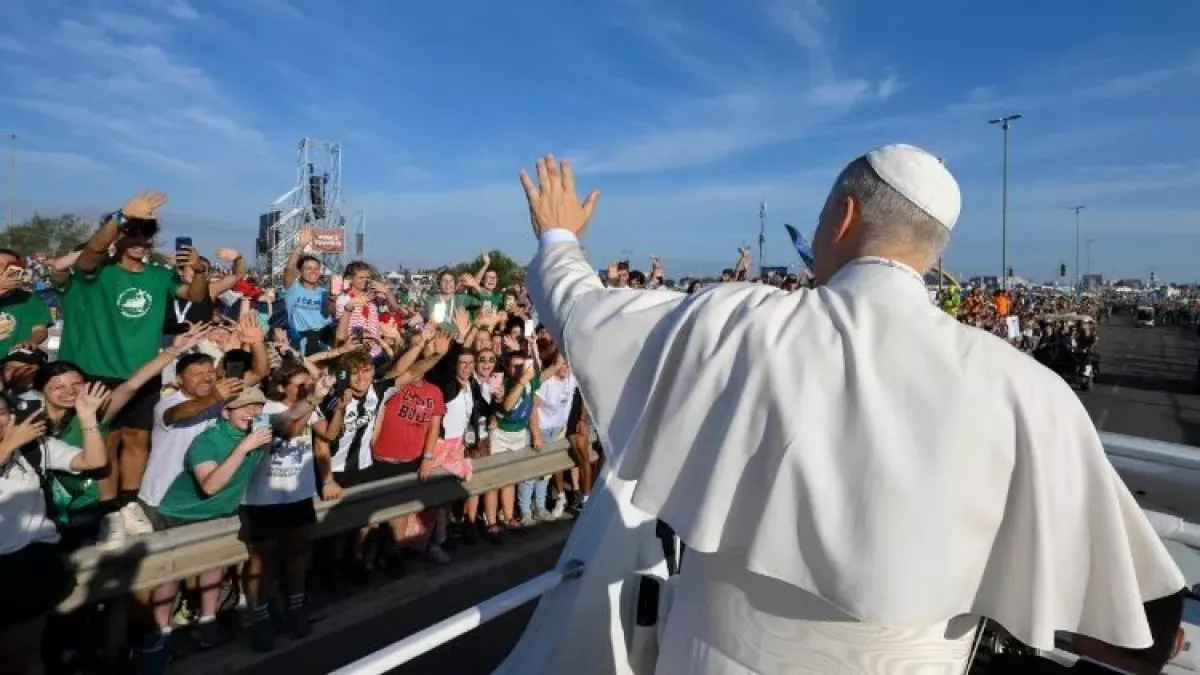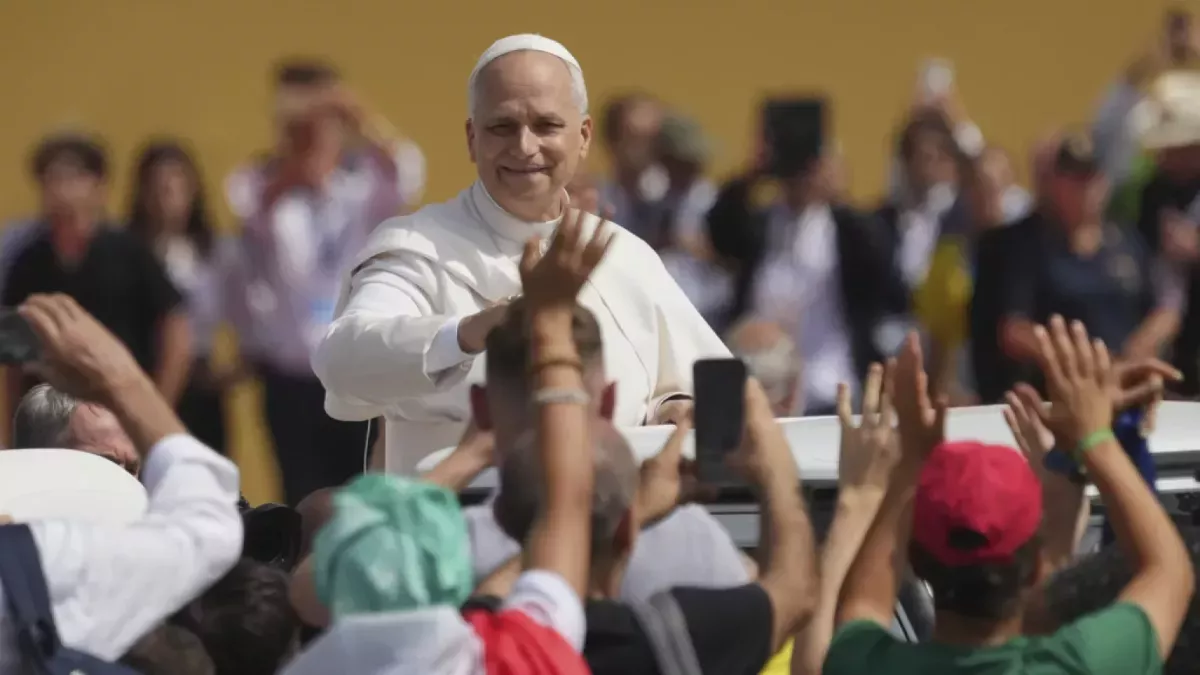Dialogue instead of weapons Pope Leo XIV calls for brotherhood
One of the landmark global events of this August, even before the month has ended, can confidently be called the Jubilee of Youth held in Rome in the last days of last week, which was attended by hundreds of thousands of young Catholics from around the world. On Saturday evening, they actively participated in the prayer vigil led by Pope Leo XIV.
A particularly interesting aspect was that following his greeting to the young men and women, Leo XIV answered questions from the youth directly from the altar. A total of three questions were asked, and we would like to present the approach of the head of the worldwide Catholic Church to important nuances of the current historical moment, clearly visible from his answers.
First of all, Pope Leo XIV called “our relationships with others” vitally important, since through these relationships our development takes place. However, the fundamental role in this process was assigned by the head of the Roman Catholic Church to culture, which he likened to a lens through which “we understand ourselves and interpret the world.” Striving for truth, Leo XIV specified, we transform culture through our choices. After all, truth essentially serves as the connecting thread between “words to things and names to faces,” while lies divide these elements, fostering misunderstanding.
In this context, having defined the internet and social media as an "extraordinary opportunity for dialogue, encounter and exchange between persons, as well as access to information and knowledge," Leo XIV drew attention to the risk of being misled when these tools "are controlled by commercialism and interests that fragment our relationships." Indeed, with such developments, the entire apparatus of communications, advertising, and social networks may aim to "lull us, to make us addicted to consumerism."
This is especially significant given the historical moment we are experiencing, where algorithms dictate "what we should watch, what we should think, and who our friends should be." The problem here is that under such control, "person becomes a tool: a commodity on the market and, in turn, a piece of merchandise."
That is precisely why it is important to maintain "genuine relationships and stable connections" to build a quality life. In this light, living without faith, without a heritage that must be protected, and without a persistent struggle for truth means "not living, but existing."
Therefore, love for one another becomes even more relevant, since in reality only friendship has the power to change the world.

Following this, Pope Leo XIV turned his attention to the freedom of choice granted to every individual, calling it a fundamental principle of humanity. In making choices, the Pontiff explained, we decide who we want to become and what direction our life will take.
In this context, the Pope agreed with the notion that making a choice also means “giving something else up and this becomes an obstacle for us.” Therefore, in order to attain true freedom, we need a solid foundation to support our steps.
As Leo XIV elaborated, this foundation lies in a spiritual paradigm that urges us “to shed the masks of a false life.” Only then can we feel free and “truly happy,” because “we learn to give ourselves.” This very choice, he said, gives “meaning to our lives.”
In light of this, the Pope called on young people to reflect on their way of life and to seek justice in order to build a more humane world — one that bears witness to goodness.
Expanding on these thoughts in his Sunday homily during the Holy Mass, Leo XIV, recalling the biblical image of grass that flourishes in the morning and withers in the evening, drew a parallel with the fragility of life. But, according to the Pope, this fragility is not a cause for fear, but rather part of the splendour of God’s creation: just as a meadow is renewed, so too is the human being called to constant renewal through love and self-giving.
Noting that “we are constantly striving for more,” Leo XIV defined happiness as “the core aspect of the heart,” and described its essence not as “accumulating or possessing, but in joyfully receiving and sharing.”
In this context, the head of the Roman Catholic Church pointedly emphasised that by engaging in dialogue between cultures and experiencing the joy of communication, young people are drawn to art, music, and sport. This clearly demonstrates how “the fullness of life is revealed through love and brotherhood,” and how hope never fades.
And already at the conclusion of the Mass, Leo XIV, in his address to the young men and women, underlined the importance of standing close “to young people who suffer the most serious evils, which are caused by other human beings,” and concluded:
“We are with the young people of Gaza, we are with the young people of Ukraine, with those of every land bloodied by war. My young brothers and sisters, you are the sign that a different world is possible: a world of fraternity and friendship, where conflicts are not resolved with weapons but with dialogue.”

The message of Pope Leo XIV is undoubtedly clear. The leader of the global Catholic community, while affirming the necessity of dialogue, places special emphasis on adherence to spiritual traditions and cultural achievements. Yes, of course, Leo XIV addresses the youth of the Christian world — but the direction of his words is relevant on a global scale.
In this context, Azerbaijan — a country that not only advocates for dialogue among civilisations, cultures, and religions but also consistently takes concrete steps in this direction — finds this message especially resonant. Moreover, today this perspective becomes one of the fundamental pillars in implementing calls and taking action to preserve humanity.
But are the representatives of the “parties of war” ready for this — those who, before our very eyes, continue to undermine the Divine order by pitting people against one another through instigated wars, destruction, and the killing of innocents?








